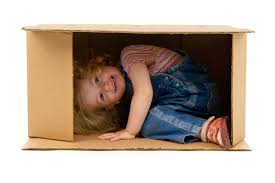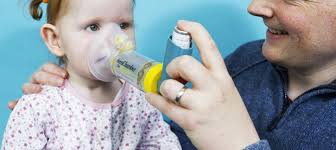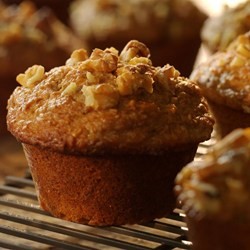Family traditions include practices and reflect beliefs that create positive feelings in families. Traditions are a valuable way to strengthen relationships and create lasting memories. Parenting.com shares ideas on ways to spend time with family. Visit their website below to learn more.
|
Share with your children
Did you know that caregivers need to follow a step-by-step process for washing hands and teach the children the proper way to wash their hands. READ MORE
|
|
This commercial really spells it out....
Did you know that child care programs are only allowed to use an EPA registered cleaning product or a bleach solution to sanitize and clean with while children are in care? Read More about what your child care program should be doing to keep your children healthy.
|

Everyday Objects are Great Toys!
We believe -
- Children develop and grow when they have time to play, make choices, explore, problem solve, imagine, and have fun.
- Children need materials to explore, manipulate, and think about.
- The best materials are open-ended with many ways to use them.
- Not all appropriate play materials are expensive and come in a fancy box.
After a few weeks of receiving shiny things in fancy boxes, lets enjoy everyday materials that children love to explore and use in their play. What makes them excellent play materials is that they are open-ended and allow for endless possibilities.
A piece of recycled cardboard is an open-ended material. Open-ended materials have an infinite number of uses, limited only by your child's imagination. By giving your child recycled, open-ended materials to play with, not only are you fostering his/her creativity and problem-solving skills, but you are saving money, as well.
T
oni Sturdivant, "
Play with Free Stuff: No Batteries Required!"
Here are our 8 favorite everyday object play materials!
1. Toilet paper and paper towel rolls -
Roll them, make bowling pins and knock them down. Paint with them and make
binoculars for walks outside. They can be wands or scepters. Put in beads and duct tape the ends to make instruments.
2. Boxes
-
Yes, the box is more fun than the toy that came in it. Play in them, pile them to build and make forts, or make a crib for a baby doll.
3. Egg cartons -
Egg cartons are the perfect place to sort pebbles or buttons. Put them with the toy blocks. Use them for paint pallets.
4. Plastic bottles
-
Put beads, small tones, bells, and other objects inside, glue on the tops, and shake, shake. Add oil and water or corn starch and glitter or metallic confetti, and they are sensory bottles. They're bowling pins and baseball bats, too.
5. Plastic cups -
Cups are great for sand and water play. Use them to pour, scoop, and stack. Put paint in them and mud.
6. Colanders -
When children are not wearing them as hats, colanders are great in the sand or water play. Children can develop fine motor skills by pushing pipe cleaners, coffee stirrers, feathers, and thin sticks through the holes.
7. Blankets-
A blanket thrown over a table makes a fort or a cave. Children can tuck in a baby doll or wear a superhero cape. Hang a blanket and you have a puppet theater.
8. Empty Wipes Containers and Tissue Boxes
-
Children can push many different objects through the opening. Fill them with fabric scraps and let children pull them out!
Resources
|
 Child Care and Asthma Child Care and Asthma
The American Lung Association and the Council wants to help you to understand the diagnosis, know what your child care program should do when an attack happens, as well as, educate and prepare child care programs to ensure the health and safety of the children in care.
Asthma has no cure and we always need to be prepared.
Asthma is a serious and growing health problem. In the past 20 years, asthma has increased worldwide. According to the New York State Department of Health, Asthma caused an average of 358 deaths per year from 1998 - 2000 and there were 12 deaths in children 0-14 years of age. One in ten preschool children is diagnosed with asthma and it is the number one reason for school absenteeism.
According to the Centers for Disease Control, every day in America:
- 5,000 people visit the emergency room due to asthma
- 1,000 people are admitted to the hospital due to asthma
- 11 people die from asthma
- Nearly Half (44%) of all asthma hospitalizations are for children.
- The death rate for children under 19 years old has increased by 80% since 1980.
What is Asthma?
Asthma is a chronic lung disease that can be life threatening. Asthma causes breathing problems. The airways in the lungs get blocked, causing the lungs to get less air than normal. Symptoms of an "asthma attack" can be difficulty with breathing, a tight feeling in the chest, coughing and wheezing. Asthma can develop quickly and it can range from being a mild discomfort to a life-threatening attack if breathing stops completely. Asthma problems are often separated by symptom-free periods. There is no cure for asthma but it can be prevented and controlled with proper care.
Managing Asthma in a Child Care Setting
Children with asthma need proper support in child care settings to keep their asthma under control and to be fully active.
Uncontrolled asthma can interfere with a child's attendance, participation, and progress in child care and in school.
Child care staff, health professionals, and parents need to work together to remove obstacles and promote children's health and development.
Consider:
Does your child care program know how to recognize and respond to a breathing emergency?
Does your child care program know how to recognize and manage asthma triggers?
Does your child have an asthma action plan?
Is your child care program Asthma Friendly?
For more Information:
- Click here for an Asthma Action Plan
- The regulations require that any child identified with asthma must have an Individual Health Care Plan for a Child with Special Health Care Needs. Click here to see a sample plan.
- Click here to learn how your child care program can become Asthma Friendly. Asthma Friendly Child Care Endorsement Informational Sheet
|
The Council is Here for You... Resources & Referrals!
Financial Help!
After School Care too!
|
Call us at
914-761-3456 ext 140,
visit www.childcarewestchester.org
or
email us at [email protected]
Our FREE Services are:
- Consultation with a trained Counselor
- Online child care search
- Information to help pay for child care
- Guidelines to choose a quality child care program
- Checklist for your visits
- And much, much more...
|
|
|
- Healthy Kid and child care
- Hand washing
- Asthma
- Fun family activities
|
|
What's happening at the Council
|
Nominate a Great Child Care Provider/Staff or Afterschool Staff
Recognize a child care provider by nominating them for a "Joey Award" via the nomination form below:
|
2017 Annual Awards Breakfast
Friday, May 19, 2017
8:00am-10:00am
Westchester Marriott
Tarrytown, NY
Council Office Closings:
Friday, December 23
Monday, December 26
Friday, December 30 (close at 3pm)
Monday, January 2, 2017
|

DATE: Jan 1-2; 5-9pm
Where:
Kensico Dam Plaza;
$15 per person. Reservations required.
Free Arts Day and Open House
Date: 01/07/2017
Where: 65 Old Bedford Rd, Katonah
Animal Tracks
DATE: Sunday, January 8, 11AM - 12PM
Where:
Greenburgh Nature Center,
99 Dromore Rd, Scarsdale
DATE: January 14
Where:
White Plains Public Library, White Plains
DATE: Timed tickets from 10am-5:30pm, Tuesdays-Sundays, through Jan. 16.
Where: New York Botanical Garden
TEACHING TRAILS: Weekend Walks for All Ages
DATE:
Saturdays OR Sundays 11:30AM: Jan 7-8, 14-15, 21-22, 28-29
Where:
Greenburgh Nature Center,
99 Dromore Rd, Scarsdale
Book Club Storytime
Date: 01/03/2017 - 01/31/2017
Where: White Plains, New York, United States125 Westchester Ave.
Good for:
Preschoolers
|
There are no current parent trainings in December but you can
go to
for a full list of trainings when they are available.
|
In need of food?
If you, your family or someone you know is in need of food assistance there are various resources in Westchester County to help.
|
 |
 |
 |
 |
 |
 |
Banana Bran Muffin

INGREDIENTS
- 2 large eggs
- 2/3 cup packed light brown sugar
- 1 cup mashed ripe bananas, (2 medium)
- 1 cup buttermilk
- 1 cup unprocessed wheat bran
- 1/4 cup canola oil
- 1 teaspoon vanilla extract
- 1 cup whole-wheat flour
- 3/4 cup all-purpose flour
- 1 1/2 teaspoons baking powder
- 1/2 teaspoon baking soda
- 1/2 teaspoon ground cinnamon
- 1/4 teaspoon salt
- 1/2 cup chocolate chips, (optional)
- 1/3 cup chopped walnuts, (optional)
DIRECTIONS
- Preheat oven to 400°F. Coat 12 muffin cups with cooking spray.
-
Whisk eggs and brown sugar in a medium bowl until smooth. Whisk in bananas, buttermilk, wheat bran, oil and vanilla.
-
Whisk whole-wheat flour, all-purpose flour, baking powder, baking soda, cinnamon and salt in a large bowl. Make a well in the dry ingredients; add the wet ingredients and stir with a rubber spatula until just combined. Stir in chocolate chips, if using. Scoop the batter into the prepared muffin cups (they'll be quite full). Sprinkle with walnuts, if using.
- Bake the muffins until the tops are golden brown and spring back when touched lightly, 15 to 25 minutes. Let cool in the pan for 5 minutes. Loosen edges and turn muffins out onto a wire rack to cool slightly before serving.
Enjoy!
|
|
 |
|